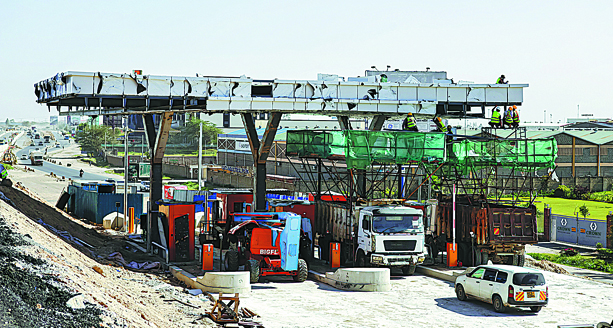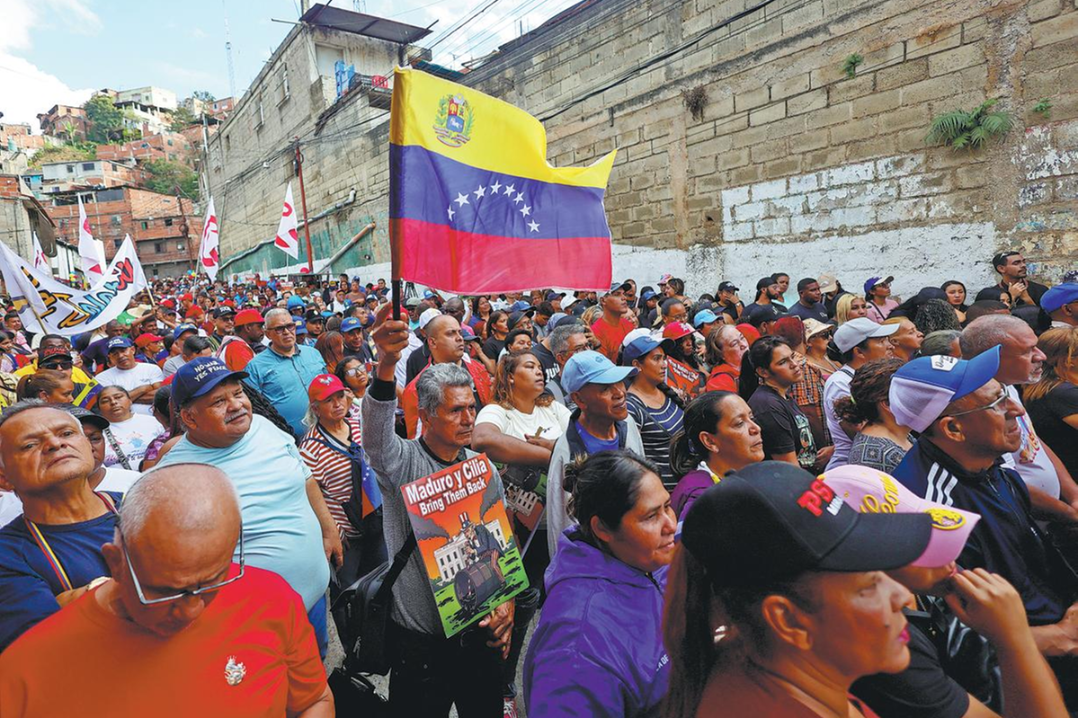New Kenyan expressway marries speed and beauty


As construction of the Nairobi Expressway, a major infrastructure development in Kenya, nears completion, beautification work that will make it environmentally friendly is unfolding.
James Macharia, the country's transport cabinet secretary, said last month that China Road and Bridge Corporation, the contractor, will plant trees and flowers along the 27-kilometer expressway in an effort to restore flora.
The exercise, which has already begun, entails planting flowers including wall creepers using a process known as aquaponic vertical farming. This is expected to open green spaces to compensate for the loss of vegetation as a result of the expressway's construction.
Daniel Mutuku Muoki, who worked with CRBC from 2013 during construction of the 470-kilometer long Mombasa-Nairobi Standard Gauge Railway, which the company also built, said the floriculture program is aimed at creating a natural balance and reducing soil erosion.
He had worked as a construction worker when the expressway was being built, but in September he and some of his workmates were moved to another site where they started preparing the seedlings now being planted, Muoki said.
"We plant the flowers, plants and grass on pipe cubes, which are then fitted on the road beams. This design is sustainable since it can hold water for one month. We intend to beautify the whole expressway, reducing soil erosion and making the road environmentally friendly."
CRBC, which is building Kenya's first double-decker expressway, plans to plant trees in all affected public places, including Nairobi National Park, Uhuru Park and the Nairobi Arboretum. The company has also gone to great lengths to ensure that the development takes into account existing infrastructure and is compatible with the environment.
Once completed, the Nairobi Expressway will have a four-lane and six-lane dual carriageway within the existing Mombasa Road, Uhuru Highway, and Waiyaki Way as well as 10 interchanges. The road is expected to significantly cut travel times on Nairobi's Mombasa Road at rush hour from about two hours to between 10 and 15 minutes.
The expressway is due to open next month, the Kenya National Highways Authority said.
Kenyans sometimes complain about debt because of Chinese investment, Muoki said, and it bewilders him.
"That's because I have been a beneficiary of China's investment in Kenya since 2013. Having worked since the construction of the Standard Gauge Railway, I have been able to learn different skills, educate my children and even build a house back in the village."

































